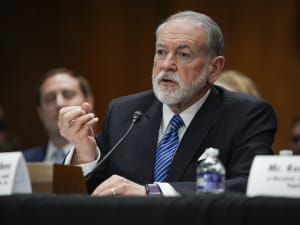Reaching out to Europe’s rising Right: Israel’s Diaspora Minister Chikli explains approach to German AfD party
Chikli gave insight into his calculations for outreach to right-wing parties

The State of Israel has historically been very hesitant to establish official relations with European parties to the right of the traditional, Christian-Democratic conservative parties, who have dominated the continent’s politics after World War II.
However, over the past years, a majority of European countries have seen these traditional stalwarts either significantly weakened or destroyed.
In their stead, various new right-wing parties have risen, some of whom have even taken over government positions, for example, Italy’s Fratelli d’Italia or Hungary’s Fidesz party.
Domestically, all of them have faced constant allegations of racism, anti-semitism or authoritarianism, further complicating Israeli outreach efforts.
Nevertheless, since taking over the Diaspora Ministry in 2022, the Likud party’s Amichai Chikli has been leading a new diplomatic offensive to establish new relations with many of these parties.
Relations franco-israéliennes, lutte internationale contre le terrorisme islamiste et l'antisémitisme, futurs projets communs avec les @PatriotesEurope : des échanges fructueux lors de notre rencontre, à Washington, avec @AmichaiChikli, ministre israélien de la diaspora. pic.twitter.com/4hlBV5us8U
— Jordan Bardella (@J_Bardella) February 21, 2025
“Antisemitism is a growing problem in Europe due to Muslim immigration,” Chikli said as he explained his project at the 50th annual Conference of Presidents of Major American Jewish Organizations in Jerusalem.
“The European right-wing parties have a point because they realize the problem and are presenting a solution.”
Just last week, Chikli met with Jordan Bardella, chairman of France’s National Rally, whom he called “a true friend of the State of Israel and the Jewish community,” as well as the leader of the Spanish right-wing party VOX, Santiago Abascal.
Thank you @CPAC and @mschlapp & @mercedesschlapp for an exceptional conference that reflected the values of the global conservative movement, which continues to grow stronger.
— עמיחי שיקלי - Amichai Chikli (@AmichaiChikli) February 23, 2025
Thank you for your true friendship with the Jewish People and the State of Israel, and for providing a… pic.twitter.com/Tpa5E6Nqg1
Chikli openly acknowledged the potential risks of increasing the cooperation with Europe’s rising right-wing powers. “The more centrist a party is, the less complexity there is in our relationship with it on the international stage,” Chikli wrote in recent a post on 𝕏.
Regarding France’s National Rally, Chikli conceded that the party’s founder Jean-Marie Le Pen had “a very problematic record of antisemitic statements.” However, he stressed that since Oct. 7, 2023, “the party has taken a clear and firm stance against antisemitism and in support of Israel’s war against jihadist terrorism,” implying that these factors trump problematic statements of the past.
Earlier this month, Chikli’s Likud party was accepted as an observer in the new Patriots for Europe (PfE) group at the European Parliament, prompting rare praise for Israel from one of the most controversial figures in Europe’s right-wing political universe, Herbert Kickl, leader of the Austrian Freedom Party (FPÖ).
While Israel has boycotted many extremist parties in Europe, relations with Austrian and German right-wing parties have, naturally, been particularly fraught.
Kickl’s FPÖ was founded in the 50s by former Nazis, and is still officially being boycotted by Israel, despite now being the largest party in Austria.
Its German ally, the Alternative für Deutschland (AfD) party, doubled its power last Sunday and is now the country’s second largest party.
On Monday, Chikli congratulated election winner Friedrich Merz, who leads the CDU party, one of the last of Europe’s traditional Christian-Democratic parties. Merz is also seen as a strong friend of Israel.
On the German Elections, Germany’s Relationship with Israel, and the Alternative - a thread🧵
— עמיחי שיקלי - Amichai Chikli (@AmichaiChikli) February 24, 2025
World War II, which claimed the lives of approximately eighty million people, including six million Jews, created—rightfully so—a profound human trauma regarding national and… pic.twitter.com/bwcmzcq81C
On the occasion of congratulating Merz, Chikli launched into a remarkable, detailed post on 𝕏, explaining his nuanced thinking about the outreach to right-wing parties while using the example of Germany.
At the outset, he noted that World War II understandably created “a profound human trauma regarding national and nationalist ideologies,” and that there was particular sensitivity to this issue in Germany due to the horrors of the Holocaust.
This situation “created a sensitive and complex relationship between the State of Israel and West Germany and, later, unified Germany,” Chikli explained.
Despite East Germany’s “highly hostile stance toward Israel” due to its Soviet alignment during the Cold War, including material support for terror groups, relations between West- and later, unified-Germany, prospered.
“In the 2000s, security cooperation between the two countries deepened. In 2008, former Chancellor Angela Merkel declared before the Knesset that Israel’s existence and security are part of Germany’s supreme national interest. On the surface – this appears to be a strong friendship,” Chikli said.
However, a closer look reveals less-known aspects of the relationship between the two countries. Between 2013 and 2023, Germany became the UNRWA agency's most significant financial backer. The German government donated an enormous 173 million euros in 2018 alone.
In addition, Germany’s left-wing parties have histories of supporting “radical left-wing and pro-Palestinian organizations” and the Palestinian Authority through government-funded party-affiliated foundations and welfare groups.
“Germany is certainly not alone in this anti-Israel incitement effort, with significant contributions from countries like Norway, Switzerland, Belgium, and Ireland,” Chikli noted.
In Germany, the main power challenging the funding of anti-Israeli groups is, “surprisingly,” the AfD.
“It was also the AfD that initiated a bill in April 2019 calling for a ban on the antisemitic BDS movement… In June 2019, the AfD also proposed a complete ban on Hezbollah’s activities in Germany,” wrote Chikli.
This corresponds to many other right-wing parties in Europe, who see Israel as a natural ally, and indeed seek to emulate it in the fight against radical Islam and Muslim immigration.
On the other hand, the AfD has faced serious criticism over comments by leading members who apparently belittled the Holocaust. Chikli pointed to the example of Maximilian Krah, a former European parliament member who was recently elected to the German Bundestag.
Chikli quoted a comment Krah made in a podcast last year, when he suggested that since over a million Germans served in the Nazi regime’s SS division, not everyone who served in it should automatically be dubbed a criminal.
Following this comment, French right-wing leader Marine Le Pen severed ties with the AfD and prevented it from joining the European Parliament’s far-right group.
“Unlike most European right-wing parties… – parties that show unequivocal support for Israel based on shared values, respect for Jewish communities in their countries, and a common struggle against radical Islam – the AfD speaks in two voices,” Chikli concluded.
While Krah represents one of these voices, Chikli also highlighted party co-chair Alice Weidel, who received support from Elon Musk during the elections, as an example of a voice “which is easy to connect with” and “represents a healthy liberal patriotism, responsible immigration policies, and a clear-eyed view of the dangers of radical Islam.”
“Time will tell whether this party will be able to purge itself of bullies who see no problem with serving in the SS. I sincerely hope so. We will continue to follow developments there. I wish the German citizens a government that reflects their sentiments and fosters healthy patriotism,” Chikli concluded.

The All Israel News Staff is a team of journalists in Israel.
You might also like to read this:














